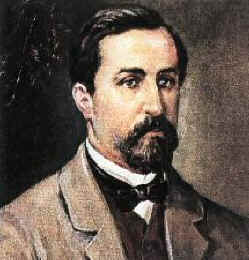
Alexander Borodin
Category : chemistryDocs , CoinDocs , ComposerDocs , FluteDocs , NameGivingDocs , PianoDocs , VioloncelloDocs

Alexander Porfiryevich Borodin (Russian: Алекса́ндр Порфи́рьевич Бороди́н, tr. Aleksandr Porfir’yevich Borodin[a], IPA: [ɐlʲɪkˈsandr pɐrˈfʲi rʲjɪvʲɪtɕ bərɐˈdʲin] (listen);[2] 12 November 1833 – 27 February 1887)[3] was a Romantic composer and chemist of Georgian-Russian extraction. He was one of the prominent 19th-century composers known as “The Five“, a group dedicated to producing a uniquely Russian kind of classical music.[4][5][6] Borodin is known best for his symphonies, his two string quartets, the symphonic poem In the Steppes of Central Asia and his opera Prince Igor.
A doctor and chemist by profession and training, Borodin made important early contributions to organic chemistry. Although he is presently known better as a composer, he regarded medicine and science as his primary occupations, only practising music and composition in his spare time or when he was ill.[7] As a chemist, Borodin is known best for his work concerning organic synthesis, including being among the first chemists to demonstrate nucleophilic substitution, as well as being the co-discoverer of the aldol reaction. Borodin was a promoter of education in Russia and founded the School of Medicine for Women in Saint Petersburg, where he taught until 1885.





Mount Borodin (71°36′S 72°38′W) is a mainly ice-covered mountain, 695 metres (2,280 ft) high, with a rock outcrop on the east side, 7 nautical miles (13 km) north-northeast of Gluck Peak in the southwest part of Alexander Island, Antarctica. A number of peaks in this general vicinity first appear on the maps of the Ronne Antarctic Research Expedition (RARE), 1947–48. This peak, apparently one of these, was mapped from RARE air photos by Derek J.H. Searle of the Falkland Islands Dependencies Survey in 1960, and named by the UK Antarctic Place-Names Committee after Alexander Borodin, the Russian composer.[1]
https://en.wikipedia.org/wiki/Mount_Borodin
web
youtube – vimeo
facebook – twitter – instagram
work